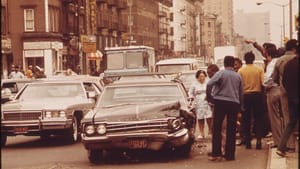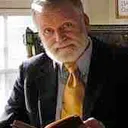Stay in the Loop
BSR publishes on a weekly schedule, with an email newsletter every Wednesday and Thursday morning. There’s no paywall, and subscribing is always free.
“I want people to leave the theater and do something”
A conversation with director Deb deCastro Braak on 'The River Niger'

Joseph A. Walker's River Niger takes us into a Conradian heart of darkness: the jungle of post-civil rights era America. The play is an uneven mix of farce and tragedy. “There’s really a fine line between farce and tragedy,” director Debra deCastro Braak explains. “The River Niger can be much darker, angrier, and much grimmer than it already is. I want to tease out the lighter moments in the plays I direct. The actors found many of those moments, and I felt it was important to go with their instincts.”
Against the background of riots in cities like Ferguson and Baltimore, Braak made it clear what she wanted: “I told the actors that it wasn’t my job to tell this story for them in my way, but to help them tell their story in their way.”
Religion, poetry, family traditions, friendship, and hope for a better tomorrow guide some of the characters’ actions. However, when things don’t work out, reaching for the bottle is a daily ritual. “The drugs, alcohol, and guns are symptoms, not causes,” said Braak. She cited the character, Jeff (Jaron Battle) who asks his mother, Mattie (Zuhairah), “Why are we so damn destructive?” and she says, “I guess because we’re so mad.” “It’s as simple — and as complicated — as that,” Braak contends.
Shakespearean tragedies
In 1972, The River Niger made it to Broadway, followed in 1976 by a film with James Earl Jones and Cicely Tyson. Yet the play rarely gets performed, in spite of its themes of the oppression of and struggle toward greater equality for African Americans.
Walker’s play comes from a tradition of ’70s black theater, when African Americans wrote dramas as lengthy as some of Shakespeare’s tragedies. It centers on Jeff, who returns to his family in Harlem; they are unaware of his having dropped out of the Air Force because of abusive treatment by “white pig officers.” A nurse from South Africa (Morgan Chare’ce), in love with Jeff, arrives unexpectedly and almost gets raped by one of Jeff’s old gang members.
“Jeff is and always has been an extension of [his father, John, played by Ron Lee Jones] — so Jeff’s failure becomes his failure,” Braak points out. Dudley (Damien J. Wallace), John’s best friend, warns him of the burden he’s placed on his son. Upon hearing that his son isn’t fulfilling his father’s dream of becoming an officer, he denies his son’s existence (“You ain’t here. If you were, you’d have your uniform on”) and flies into a rage. He then goes on a rampage and leaves home, drinking himself into a stupor for many days.
Reluctantly, Jeff agrees to help his old buddy Moe (Keith Illidge) and his gang in one more illegal act. When the revolutionary plan backfires and police surround the house, Jeff’s father makes the ultimate sacrifice to save his son from further disgrace and to “get the children straight,” bringing the play to a sobering, if unexpected, end.
A tragic, blasphemous hero
 Braak sees John as “a philosopher-poet, a good man. He’s really a tragic hero. Walker, a college professor, may have been a kind of ‘classical revolutionary,’ taking the Greek tragic structure and applying it to black life in Harlem in the late ’60s, early ’70s."
Braak sees John as “a philosopher-poet, a good man. He’s really a tragic hero. Walker, a college professor, may have been a kind of ‘classical revolutionary,’ taking the Greek tragic structure and applying it to black life in Harlem in the late ’60s, early ’70s."
The family’s alcoholic grandmother (Wilma Shakesnider), who sings a mixture of hymns with an operatic voice, reminiscent of Giraudoux’s eccentric Madwoman of Chaillot, “represents the older generation’s disconnect with the Black Power movement. ‘Black’ to her isn’t beautiful,” Braak points out.
In one scene, the father, drunk and upset, feeling existentially threatened, questioning his faith, gets so angry with Jesus that he hurls one blasphemous epithet after another at his picture, “Jesus, you fucker are fucking with me.”
Belief systems crash (“I don’t believe in this country anymore”), with poetry taking on a new primacy (“Poetry is what the revolution is all about. Poetry is religion — the Alpha and Omega”). Braak observes, “Poetry is a way of being heard, of giving voice to those who have been silenced.”
Some may be disturbed by the frequent use of profanity (“I was a belligerent nigger. . .a super nigger”). Braak explains, “It may have been an attempt to take back that word, to take its power away from the people who would use it against them. It could also come from deeply rooted anger and self-hatred.” Ultimately, the string of profanities makes way for a paradigm shift of an oppressed people (“I don’t have to prove anything to no one”). Going by the standing ovation from the audience, it seems the play hit a raw nerve.
A number of audience members cried hearing the poem “The River Niger.” Braak admits, “I cry every time. It’s so beautiful: ‘Hear me, my children, I sleep in your veins. . .I know that you know I flow to the ends of your spirit. . .’ That poem speaks to the heart and soul of African Americans, to their history, both ancient and modern.”
A challenge to theatergoers
The River Niger presents Jeff as an African-American everyman who struggles with life. “I’m with Brecht,” Braak says, “I want people to leave the theater and do something. Get angry, get involved, examine their own prejudices, call others out on theirs. Nothing changes unless we change it. The last thing I’d want them to do is leave saying, ‘Well, wasn’t that an interesting story about some people who aren’t me?’”
At the end of this play with its tragic ending, the energy from the audience hit the actors like mourners at a funeral in New Orleans: They came forward in a Soul Train line, moving rhythmically to the enthusiastic applause of the audience — life returned. And the world was in order again.
Above right: Director Braak.
What, When, Where
The River Niger by Joseph A. Walker. Deb deCastro Braak directed. First World Theatre Ensemble in association with Kaged Tiger Productions. May 14-24, 2015 at the Meeting House Theater, 3500 Lancaster Ave., Philadelphia. http://www.firstworldtheatre.biz/
Sign up for our newsletter
All of the week's new articles, all in one place. Sign up for the free weekly BSR newsletters, and don't miss a conversation.

 Henrik Eger
Henrik Eger